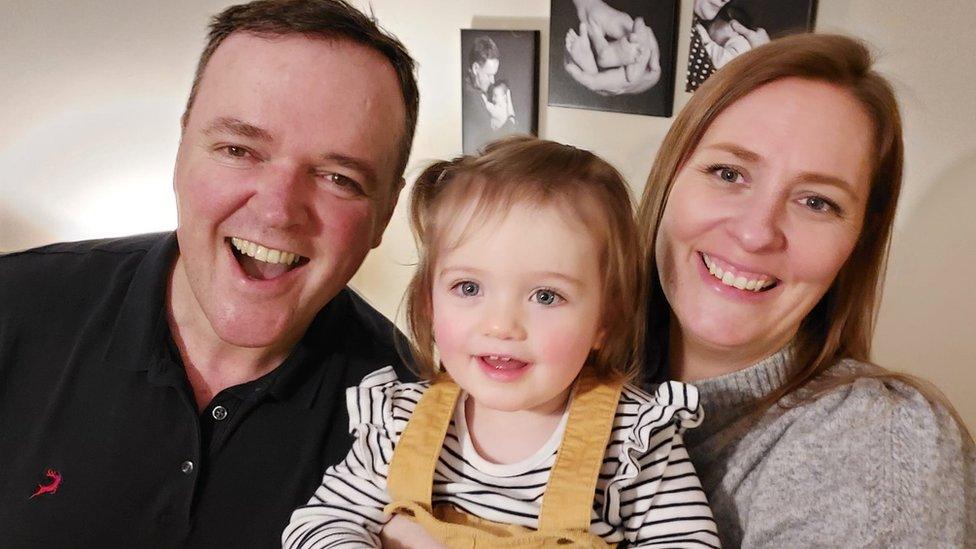Childbirth: Mum left feeling dirty by incontinence injuries
- Published
Women are coping on their own with serious bowel injuries caused during childbirth.
"It's isolating, debilitating and you feel dirty."
Too many women have to cope with bowel incontinence from injuries during childbirth, according to one charity.
Anna Clements, from Masic, said stigma and a lack of information meant women were unaware of the medical support available.
The Welsh government said a plan would be published in the summer on how health boards should provide "high-quality women's health services".
A coalition of charities said this was one of a number of ways women experience poor health outcomes.
Women need to be listened to and not just dismissed and told 'this happens with birth - just get on with it'," added Ms Clements.
Masic supports women who have experienced anal sphincter injuries - an issue which carries so much stigma that few will speak to anyone about their symptoms.
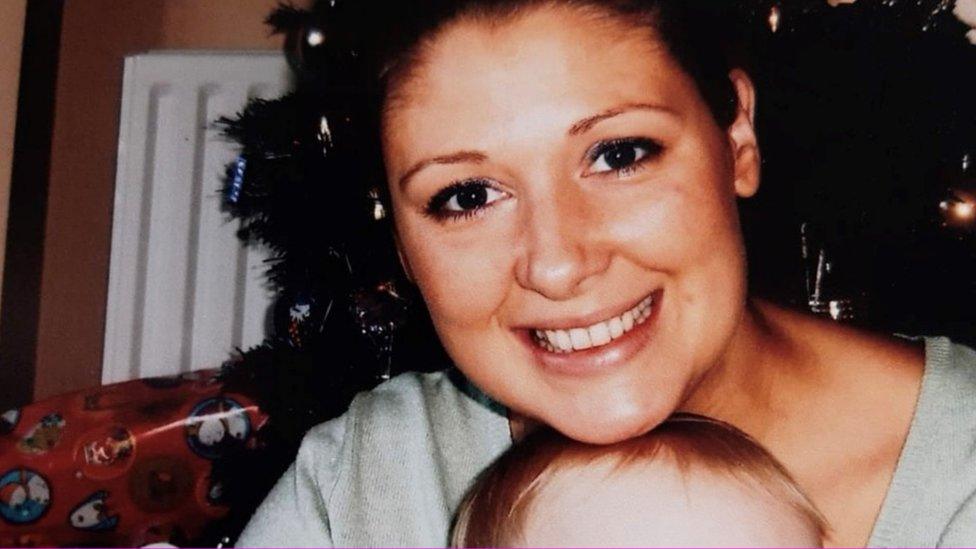
Anna Clements said women need to be listened to and not be told childbirth injuries are normal
Ms Clements said the charity mainly helped women who have had "third and fourth degree tears - that's the damage caused to your anal sphincter".
"It's a traumatic injury to the pelvic area, usually to the perineum," she added.
But she counts herself lucky that her own injury, 13 years ago, was so severe she received treatment straight away.
Ms Clements, from Nottingham, was given a procedure called sacral nerve stimulation which helped control the incontinence, but said, at 46, perimenopause, external could mean symptoms "come back with a vengeance".
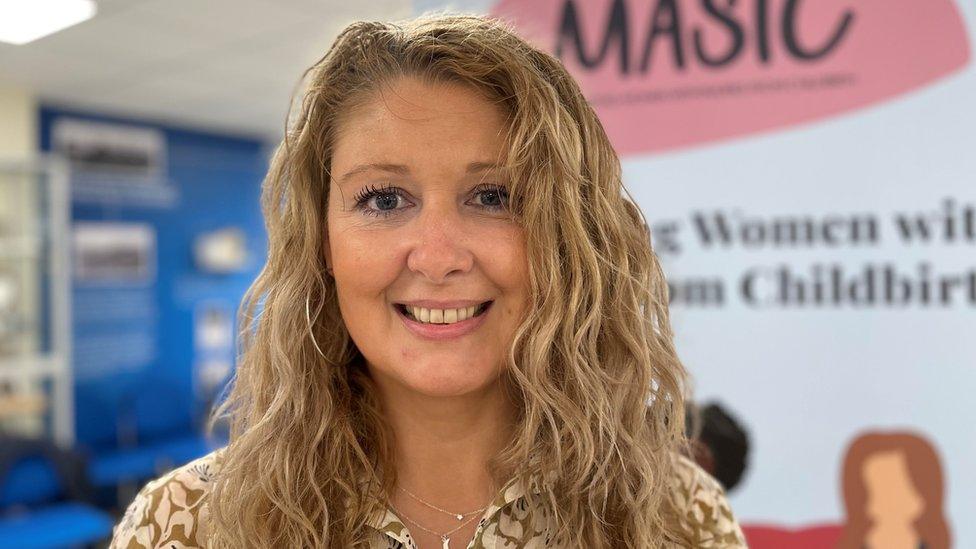
Anna Clements wants it to be easier for women to access the help and support they need after childbirth injuries
"It affected the relationship with my husband, my work, my social groups - the way people react to you - it affects everything."
The injury meant eventually she had to leave a job she loved.
"At first I had no idea what the injury was - I didn't dare to look and I didn't feel comfortable knowing what was going on really.
"I thought once I got a repair it would go back to normal. Obviously I've found out now that isn't the case."
Cardiff and Vale health board has opened a new pelvic health hub to improve care for patients who have suffered similar injuries.
Anna Clements has said this is a model that could be used more widely, with current healthcare provision "a postcode lottery".
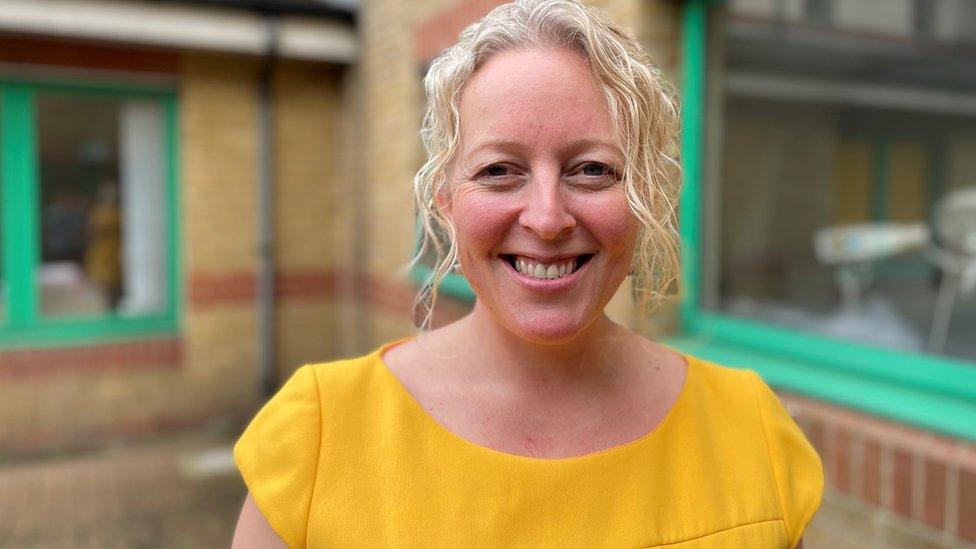
Colorectal surgeon Julie Cornish says some women she sees have had issues for up to 10 years
Julie Cornish, a colorectal surgeon, was instrumental in setting up the hub which helps patients with pelvic organ prolapse, incontinence and bowel dysfunction.
"These are really common conditions - they mainly affect women, but can affect men as well," she said.
'We need to talk about it'
Clinics for things such as bowel, bladder or gynaecological issues are held simultaneously in the hub, based at Barry Hospital, Vale of Glamorgan.
This means patients can get immediate advice from different specialists without joining separate waiting lists which cuts waiting times significantly.
Ms Cornish acknowledged the numbers currently seeking help were "the tip of the iceberg" because of the stigma.
"We see patients usually who've had problems for five, seven, even 10 years.
"The ones that come to us quickly are the ones that have really significant problems, but the ones in the middle just put up with it. And it's not until something triggers it - some event or some disaster - that means they will go and seek help."
Ms Cornish added that "we need to talk about it".
She said there are a "number of people that are ashamed or embarrassed because they think they are the only person - but they're really not.
"If you seek help, you can get help."
The Women's Health Wales coalition, which includes more than 60 organisations, has produced a report claiming medicine and healthcare services fail to meet female patients' needs.
The coalition is made up of charities, royal colleges, patient groups, as well as British Heart Foundation Cymru and Fair Treatment for the Women of Wales (FTWW).
"Health inequalities are rife in Wales, from a lack of access to specialist services to a lack of appropriate data," said Gemma Roberts, policy and public affairs manager at British Heart Foundation Cymru.
"So Welsh government's plan needs to be ambitious to ensure a holistic life course approach to women's health, encompassing all areas where the odds are stacked differently for women, such as in heart attack care."
Debbie Shaffer, founder of FTWW, added that patient involvement was crucial.
"Patients are often the experts by experience in their own care and can identify areas of improvement moving forward - their insight is invaluable.
"We are calling on the Welsh government and health boards in Wales to commit to continuing this level of involvement - nothing about us, without us."
A Welsh government spokeswoman said: "Our women's health implementation group continues to progress vital work to support women's health, including establishing a network of pelvic health and wellbeing coordinators and overseeing the appointment of a dedicated endometriosis nurse in each health board."
- Published19 May 2022
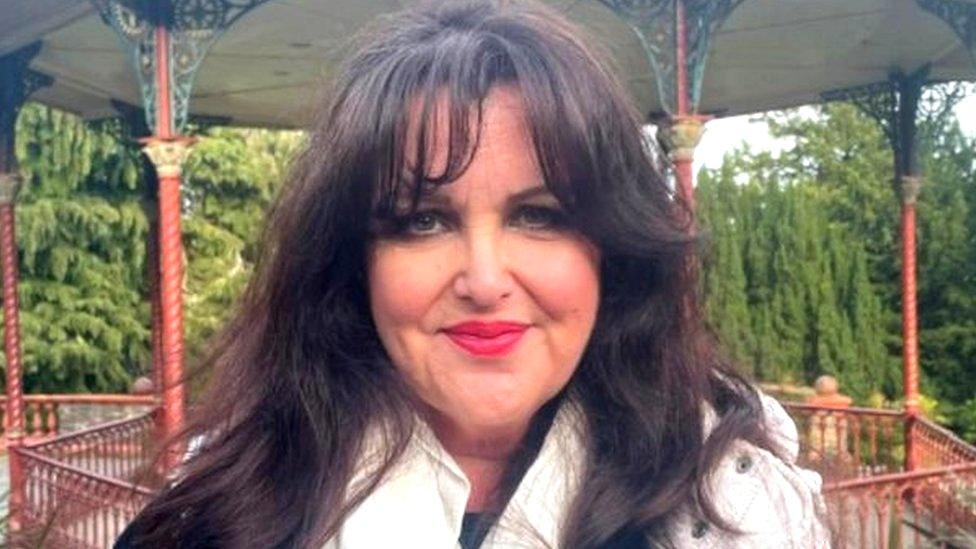
- Published22 March 2022
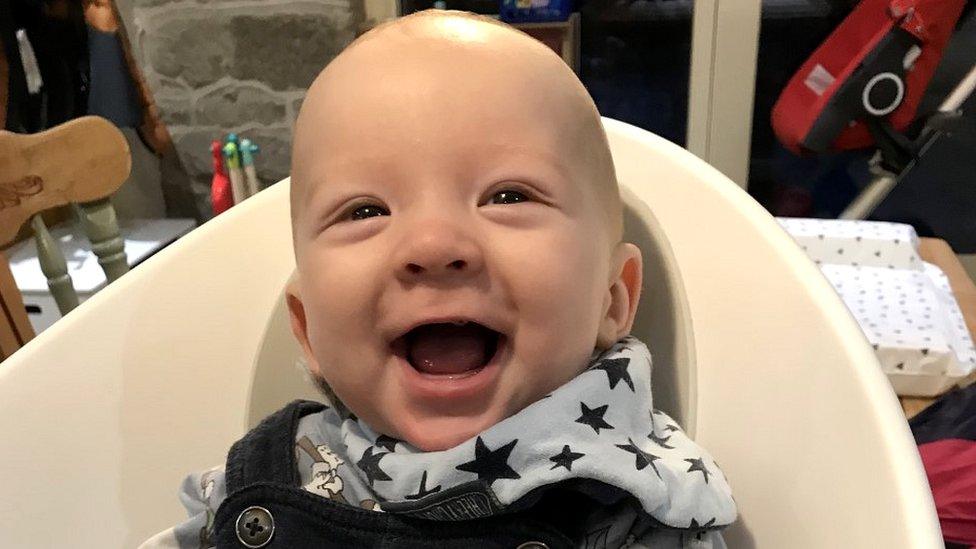
- Published17 February 2022
